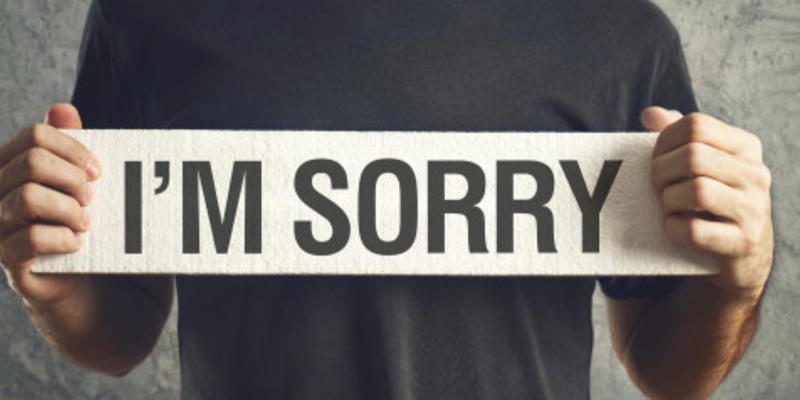
I’m sorry, but have you noticed the wrong people are apologizing?
There are people who really need to apologize, people who have hurt others by words or actions either careless or deliberate.
Japan should apologize to the approximately 200,000 Chinese and Korean women taken as sex slaves during World War II. So far, they are refusing, and many of these now elderly women have died without ever hearing an apology.
Bill Cosby should apologize to all the women he drugged for sex.

Donald Trump should apologize to Senator John McCain after jeering at him for being taken as a prisoner of war, and to Fox News anchor Megyn Kelly for saying her pointed debate questions meant she was bleeding from her eyes and from her “wherever” (Trump later said he had meant her ears. Yeah, right). Donald Trump has refused to apologize to either. In fact, he claims Megyn Kelly owes HIM an apology.

You know who shouldn’t apologize?
Women who sprinkle their most mundane conversations with, “I’m sorry…” as though they’re sorry for speaking up, for their outfits, for taking up extra space. They’re not only apologizing for the things they may have done wrong, they’re sorry for things over which they have no control, like the weather. It would be amusing, except it undercuts women in every situation, including the workplace.
Comedian Amy Schumer did a hysterical skit on women’s tendency to apologize but—I’m sorry—I can’t show it to you because Comedy Central wants you to buy this season’s episodes rather than watch them for free. But here’s an article that pretty much summarizes the whole skit.

You know who’s not sorry?
Men.
Men interrupt, man-splain, manspread on the subway, and generally act as though they have every right to every action. They ask fewer questions in the workplace and give more frequent direct orders.
In general, women at work are seen as softer. They ask more questions, they request instead of order.
Which is fine, because there are loads of studies about how important emotional intelligence is in the workplace. But being softer doesn’t have to mean being sorry.
Just stop.
Let’s just stop apologizing for things we aren’t responsible for. And let’s start demanding that those who should apologize be held accountable.